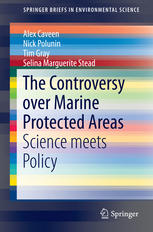

Most ebook files are in PDF format, so you can easily read them using various software such as Foxit Reader or directly on the Google Chrome browser.
Some ebook files are released by publishers in other formats such as .awz, .mobi, .epub, .fb2, etc. You may need to install specific software to read these formats on mobile/PC, such as Calibre.
Please read the tutorial at this link: https://ebookbell.com/faq
We offer FREE conversion to the popular formats you request; however, this may take some time. Therefore, right after payment, please email us, and we will try to provide the service as quickly as possible.
For some exceptional file formats or broken links (if any), please refrain from opening any disputes. Instead, email us first, and we will try to assist within a maximum of 6 hours.
EbookBell Team

0.0
0 reviewsThis book is a critical analysis of the concept of marine protected areas (MPAs) particularly as a tool for marine resource management. It explains the reasons for the extraordinary rise of MPAs to the top of the political agenda for marine policy, and evaluates the scientific credentials for the unprecedented popularity of this management option. The book reveals the role played by two policy networks – epistemic community and advocacy coalition – in promoting the notion of MPA, showing how advocacy for marine reserves by some scientists based on limited evidence of fisheries benefits has led to a blurring of the boundary between science and politics. Second, the study investigates whether the scientific consensus on MPAs has resulted in a publication bias, whereby pro-MPA articles are given preferential treatment by peer-reviewed academic journals, though it found only limited evidence of such a bias. Third, the project conducts a systematic review of the literature to determine the ecological effects of MPAs, and reaches the conclusion that there is little proof of a positive impact on finfish populations in temperate waters. Fourth, the study uses discourse analysis to trace the effects of a public campaigning policy network on marine conservation zones (MCZs) in England, which demonstrated that there was considerable confusion over the objectives that MCZs were being designated to achieve. The book’s conclusion is that the MPA issue shows the power of ideas in marine governance, but offers a caution that scientists who cross the line between science and politics risk exaggerating the benefits of MPAs by glossing over uncertainties in the data, which may antagonise the fishing industry, delay resolution of the MPA issue, and weaken public faith in marine science if and when the benefits of MCZs are subsequently seen to be limited.